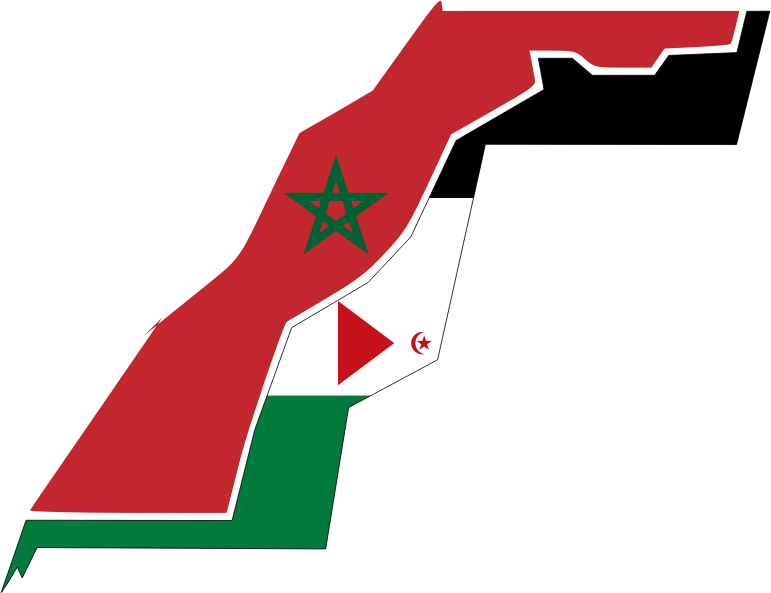
Dubbed ‘Africa’s last colony,’ Western Sahara sees the last colonial state in Africa awaiting its independence. Caught between Morocco, Algeria, Mauritania and the Atlantic Ocean, Western Sahara is a highly disputed and fought over territory.
Formerly a Spanish colony, Western Sahara was annexed by Morocco in 1975 and since then has been the subject of a long-running territorial dispute. Here, Morocco fights the territory’s indigenous Sahrawi people, led by the Algerian-backed Polisario Front, a rebel Sahrawi nationalist liberation movement that claims Western Sahara. Today, an eastern area of Western Sahara, making up around 20% of the territory, is claimed and administered by the self-proclaimed Sahrawi Arab Democratic Republic (SADR), which was declared by the Polisario Front on 27th February 1976. The remaining 80% of the territory is run and administered by the Moroccan government.
Despite Morocco claiming authority over Western Sahara since 1975, the UN does not recognise Moroccan control, and neither do UN members. Instead, the UN has named Western Sahara a ‘non-self-governing territory.’ This term is defined in Chapter XI of the Charter of the United Nations as ‘territories whose people have not yet attained a full measure of self-government.’ The UN’s involvement doesn’t stop here though. In 1991 a UN settlement plan went into effect with the UN Security Council proposing a referendum on self-determination for the people of Western Sahara, enabling them to choose independence or integration with Morocco. This referendum, however, has yet to occur, and this year the UN has extended the mandate for a referendum by another year.
The SADR is recognized by 46 UN member states, and is also a member of the African Union, with 38 of its 54 member states recognizing it. One reason the referendum has not yet happened is Morocco’s resistance – a sign of their fear that Western Sahara will vote for independence. The split, indicated in the image above, is attributable to a 2,700-kilometre-long sand berm, built during the conflict, which stretches from inside southern Morocco to the Atlantic Ocean at Guerguat. It is well known that the berm is littered with landmines and explosive devices, as is much of Western Sahara, largely due to the conflict between 1975 and 1991 between the Royal Moroccan Army, Mauritanian armed forces and the Polisario military forces.
The situation in Western Sahara continues to be characterized by tensions and firing incidents across the berm between Polisario and Morocco which have caused notable challenges for MINURSO (United Nations Mission for the Referendum of Western Sahara). After a 29-year ceasefire, fighting re-erupted in November 2020 as the Polisario Front ramped up its efforts to eject Morocco from the territory they believe is their own. Tensions, incidents, and low-level hostilities have continued since then. Recent reports in September include a Royal Moroccan Army drone strike at Bir Lahlou that resulted in 4 casualties, including a Polisario regional commander. There have also been fuel and food shortages, with 30% of Sahrawi refugees being food insecure according to the World Food Programme.
The problem of Western Sahara is certainly one that is meaningful to its people. ‘I am willing to die for my family’ are the words of just one 36-year-old male who signed up among the thousands of men that enlisted for the Sahrawi People’s Liberation Army back in November 2020. Continued efforts by MINURSO to find a long-lasting resolution in Western Sahara come at a time when tensions between the two sides are ever high. The failures of MINURSO since 1991 to find a solution has significantly contributed to this renewed conflict. For now, the willingness of Morocco to cling on and combat the ever increasing ambitions of the Polisario Front will shape this territorial dispute long into the future.
Image: Western Sahara Flag Map with Stroke // CC0 1.0



Average Rating